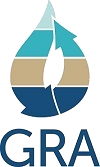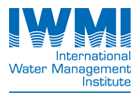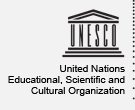Presentations
Bruggeman, Adriana
Presentation Title
Groundwater or Livelihood? The Case of Al-Ajaz Community in Northern Syria
Institution
The Cyprus Institute
Video
bruggeman
Presentation
Profile Picture

Abstract
The small community of Al-Ajaz in northern Syria has benefited greatly from the access to groundwater. Farmers use the water for supplemental irrigation of wheat and legumes during the highly variable rain fed winter season, while sugar beet, potatoes and summer vegetables are also irrigated. But groundwater levels have dropped substantially since the start of groundwater-based irrigation in the 1980s, with current water levels more than 150 m below the surface. The main aim of our cooperation with the community was to combine research and farmers? knowledge in irrigation and agricultural management to improve the sustainable and productive use of groundwater in rural Mediterranean environments. Upon request of the farmers, ICARDA provided 20 different bread wheat varieties for irrigated and rain fed conditions. A total of 14 farmers participated in these wheat trials during the 2006/07-2008/09 seasons, with seven or eight farmers each season. A much larger number of farmers also joined our discussion meetings and the scoring of varieties. Provision of irrigation scheduling advice proved more complex than expected. The main difficulties are the widely varying initial soil moisture conditions, as a result of the previous crop and management, and the farmers? irrigation management practices. Basically, three groups of farmers could be distinguished. The first group is the less well-off farmers, who have neither a functioning irrigation well nor ready cash to purchase fuel. They grow rain-fed crops, but they may ask a neighboring farmer to irrigate their field during exceptionally dry periods. The second group is the farmers who try to economize their irrigation and who are generally most interested in soil and water measurements and advice. The third group is the farmers who are a little better off; these farmers simply try to maximize their yield and would rather irrigate too much than too little. Rainfall was below the long-term average of 340 mm for all three seasons, but was fairly well distributed during the 2008/09 season. Average yields for the three groups of farmers during this last season were 1.9, 5.1, and 8.2 ton/ha, respectively, which is clearly indicative of the important effect of irrigation. Even though the price of fuel for the irrigation pump nearly tripled during the research period, the farmers? irrigation behavior did not markedly change. Considering the hydrogeologic, climatic and socioeconomic conditions of these rural Mediterranean environments, the sustainable use of groundwater resources may only be achieved through official, community-based control of groundwater. Although groundwater control may be relatively easy to establish on a community basis, it will require a dedicated campaign to educate the farmer union and government officials, supported by studies that provide clear information on groundwater resources. At the same time, field research to improve our understanding of the response of different crops and varieties to water availability and stress throughout the season are needed. Increasing the cost of fuel does not seem to be an effective strategy for reducing groundwater use, because it could run the poorer farmers, who actually irrigate less, out of business.
Figures
None Available
|












